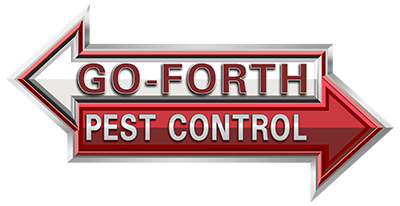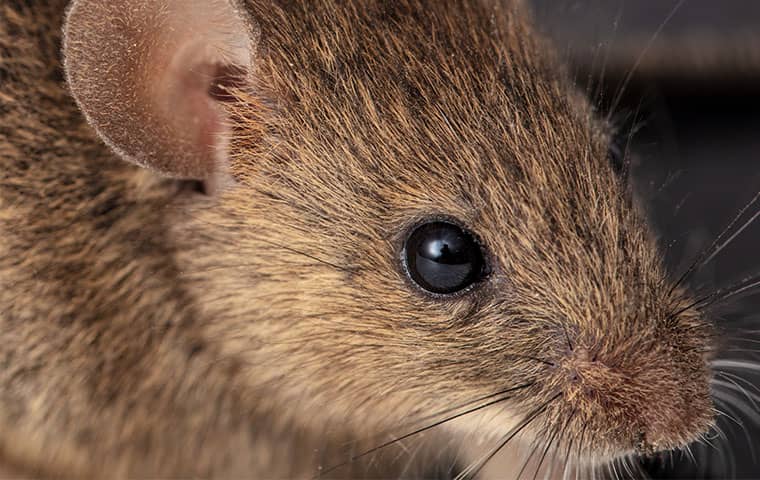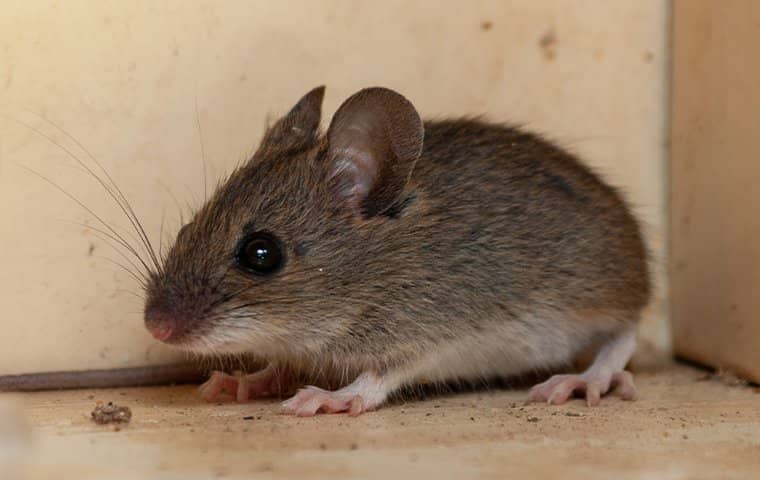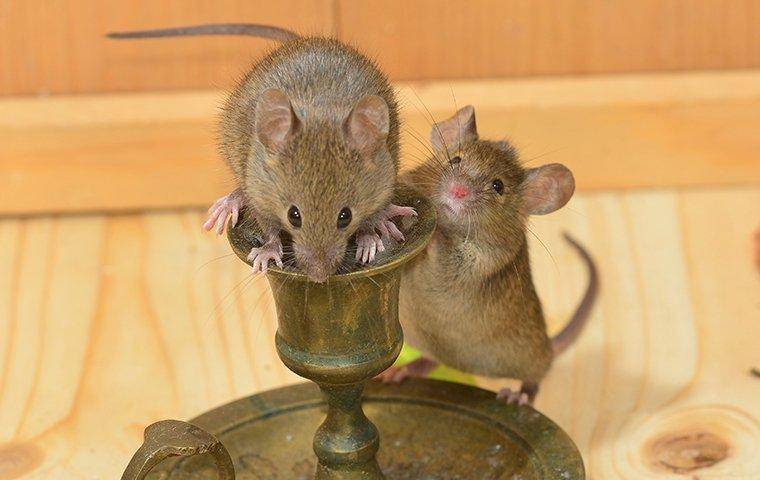Why do we lock our doors when we settle in for the night? Why do we invest in alarm systems, motion-detection lights, and doorbell cameras on the front porch? We invest in technology and are vigilant in ensuring our windows and doors stay locked because we want to feel protected in our homes. We don't want to be the victim of a home invasion; we don't want to put our family at risk.
In the same way, we take precautions to protect ourselves against burglars or unwanted intruders; we must guard against rodents. Although some people would like to enter our homes and rob us, there are arguably more rodents that would also like to invade our houses. Because rodents are around our homes, we need to protect ourselves and keep them away.
You may be reading this article because rodents are inside your home. While you want to keep them out in the future, you have a problem inside your home now, and you need rodent control in Columbia. Fortunately, Go-Forth Pest Control is here to remove rodents from your house.
Go-Forth Pest Control has been resolving rodent problems since 1959. We are a third-generation, family-owned and operated business that values family and people. Our technicians are highly trained, and we hold the record for the most consecutive Technician of the Year awards. We have received numerous accolades from local magazines, the Better Business Bureau, and pest control industry publications. Although we are proud of our achievements, we are honored to have a five-star Google rating from those we serve.
Now that you know a little about us, let's discuss how to get rid of rodents in your Columbia home and protect yourself from future infestations.
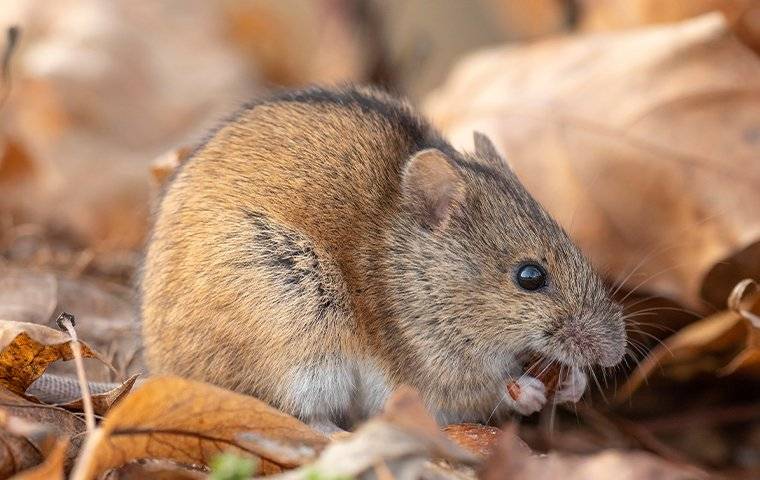
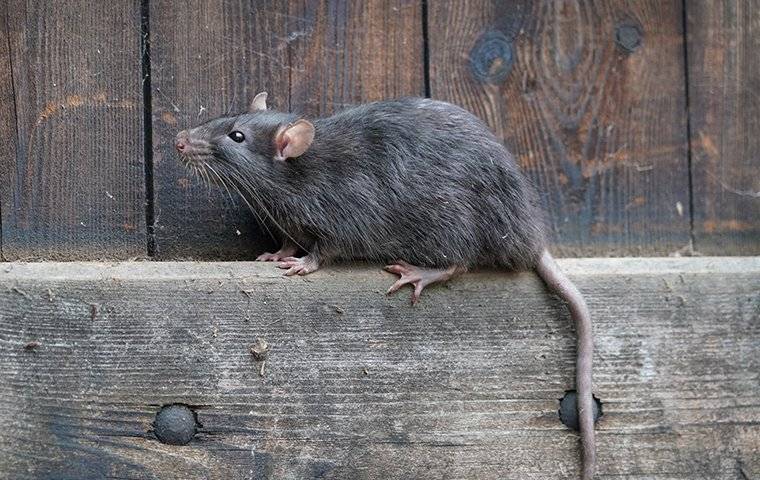
What Are Rodents?
Rodents are furry, warm-blooded animals that have four feet and a tail. Although a cat or dog fits that description, what sets rodents apart is a pair of upper and lower incisor teeth. These teeth have a soft dentine backside and a hard enamel on the front side, and where the two meet, they form a sharp razor edge. Some rodents (i.e., gophers and voles) use their teeth to cut through roots as they tunnel through the yard. Other rodents (i.e., beavers) use their teeth to cut down small trees to create dams.
Rats and mice are the rodent species that cause the most concern for Columbia homeowners. Although many rodents (e.g., voles, gophers, beavers, squirrels, etc.) are wild animals that avoid humans, rats and mice are commensal animals that do not mind sharing space with people. These rodents use their sharp teeth to chew through aluminum, vinyl, and wood siding to enter homes.
Although many species of rats and mice exist worldwide, the following are common rodent invaders of Columbia homes:
- House mice
- Roof rats
- Norway rats
We will discuss these common rodents to help you identify what you see inside your Columbia homes.
House mice have a 2 1/2 to 3 3/4-inch dusty grey body with a cream-colored underside. These animals have a pointed muzzle, large ears, and a 2 3/4 to 4-inch tail. When house mice invade a Columbia home, they reside in dark, secluded areas and use fabric, insulation, packing materials, and other products to create a nest. Of the rodent species that infest Columbia homes, house mice are the most prolific. A typical female house mouse can produce six pups every six weeks or 35 offspring annually.
Norway rats have a round, long 7 to 9 1/2-inch body with an additional 6 to 8-inch tail. These rodents have a brown coat with black hairs interspersed on the topside and a white or grey belly. They have small ears and eyes and a blunt muzzle. Norway rats prefer to live in the basement and ground levels of homes and create nests underneath debris piles and other undisturbed materials.
Whereas Norway rats live on the ground level of homes, roof rats live on the upper levels. These rodents have a total body length of 12 to 16 inches (including the tail). They have the same coloration on the topside and belly as Norway rats, although they may have a black underside. Roof rats have large ears and eyes and scaly tails. Roof rats live in colonies with other roof rats under debris in the attic and rafters of homes.
Whether house mice, Norway rats, or roof rats are your problem, Go-Forth Pest Control provides rodent control for homes in the Columbia area. Our trained technicians can identify the rodent species infesting your home.
Rodents Spread Disease And Damage Property
Rodents have oily fur covering their body. While their coat may make them appear cute and cuddly, it is an attractant for bacteria, viruses, and other parasitic insects. Rodents forage in sewers, drains, garbage, compost piles, and animal feces for rotting plant and animal matter. They ingest the pathogens into their systems when they consume foods in these locations.
Pathogens and dirt stick to their oily fur as they root around and search for food. In addition to disease-causing pathogens, fleas, ticks, mites, and lice live in these locations where they jump, quest, or crawl onto the rodent as it consumes food.
Rodents are nocturnal and move through homes at night; however, they do not have good eyesight. As a result of poor vision and darkness, they bump into objects throughout the house and leave pathogen-filled grease marks. Like all living creatures, rodents defecate and contaminate surfaces as they move through a house. Rodents may urinate on eating utensils and exposed foods as they travel along kitchen countertops and inside cabinets; they deposit droppings in kitchen and bathroom cabinets and cooking and eating surfaces.
Because rats and mice must constantly gnaw to keep their ever-growing incisor teeth trim, they leave disease-infested saliva on plastic and glass food storage containers. Leptospirosis, tularemia, and salmonellosis are diseases spread by rats and mice. In addition to these infections, Norway and roof rats also transmit rat-bite fever, jaundice, cowpox virus, and trichinosis; house mice spread lymphocytic choriomeningitis (LCM). Symptoms from these various maladies range from flu-like to those requiring additional medical attention. In addition to the diseases rodents spread, the parasitic insects that hitchhike in their fur expose the occupants to other conditions.
Fecal matter from rodents can trigger asthma attacks and allergic reactions. These issues occur when occupants inhale dried airborne particles as they circulate throughout the house.
Rodents damage homes by their need to chew. Rats create holes in walls and floors. Electrical and internet wiring are often present where rats and mice construct nests. Rodents will chew on the wiring and expose them to each other and moisture. Power outages, short-circuits, disrupted internet service, and fires can result from a rodent infestation in the house.
Go-Forth Pest Control protects your home and family from diseases and destruction caused by these North Carolina rodents.
Simple Rodent Exclusion Tips That Work
We install locks and alarm systems to stop intruders, and we can do the same for rodents. While alarms and locks are not the best deterrent against rodents, these rodent prevention tips will keep them away:
- Prune tree branches and shrubs away from the house.
- Remove debris in the yard, basement, and attic.
- Seal cracks larger than 1/4 inch around the home.
- Repair loose mortar and weather stripping around the basement foundation and windows.
- Relocate firewood 20 feet from the structure and elevate.
- Store boxes off the floor.
- Inspect rarely used cars or RV's on the property.
- Keep outdoor and indoor garbage cans closed.
- Fix leaking plumbing fixtures and pipes.
- Seal the food in airtight plastic or glass containers.
We can provide additional tips when a Go-Forth Pest Control technician inspects your property.
The Best Rodent Control Solution For Your Home
Although the rodent prevention tips previously mentioned will protect you from a future rodent infestation, they will not stop a current rodent invasion. If you have encountered a rat running from beneath the couch or seen a mouse scurry behind a kitchen cabinet, you need the best rodent control near you from Go-Forth Pest Control. When you contact us, we will dispatch a certified technician to conduct a free inspection of your Columbia home. Our technicians know the signs of a rodent infestation and can determine if rodents are invading your home. We will identify entry points, attractants, and the rodent species inside your house.
Once we gather the necessary information, we will create a strategy to remove the rodents from your Columbia house. Our process involves strategically placing traps, baits, and glue boards to capture the offending pests. Once we eliminate the current infestation, we offer ongoing service options to ensure rodents are never again a problem. Furthermore, we provide an exclusion service option to seal up ground-level entry points into your house.
Protect your family and home investment by contacting Go-Forth Pest Control to schedule a free inspection and to learn more about our rodent control service.

